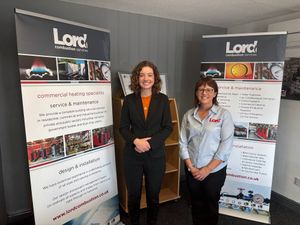Skills still a blight as West Midlands' businesses battle uncertainty
Battling companies across the whole West Midlands are showing resilience despite economic and political uncertainty across the UK, say business leaders.
But they warn that one of the biggest threats to their success is that companies, especially manufacturers, cannot find suitable staff.
These are among the findings for a West Midlands Quarterly Economic Snapshot for the second quarter of 2018 carried out by Greater Birmingham Chambers of Commerce (GBCC), Black Country Chamber (BCC) and Coventry & Warwickshire Chamber of Commerce (C&WCC).
The report, led by GBCC senior policy adviser Raj Kandola, revealed that 61 per cent of firms were expecting to increase their profits in the next 12 months.
But results varied widely across the region; the greatest number of firms expecting an uplift were in the Black Country (59 per cent) while the highest proportions of businesses expecting a fall in their profits were based in Greater Birmingham (26 per cent).
The report reveals a continuing trend of recruitment problems with 69 per cent of manufacturers unable to find suitable staff, a three per cent increase on the previous quarter.
Corin Crane, chief executive of the Black Country Chamber, said: “With 53 per cent of West Midlands business reporting recruitment difficulties, an increase of three per cent, there is certainly cause for concern.
“The West Midlands is home to a world-class, vibrant manufacturing sector, so it is worrying that 69 per cent of manufacturers are reporting an inability to find suitable staff.
“We know that the average age of the manufacturing workforce in the region is too high and although sweeping changes to the apprenticeship system were targeted at increasing take up, the Government’s own figures point to a decrease in apprenticeship starts since the introduction of the Levy.
“More changes to the technical education landscape are on the horizon with the introduction of the T-Level, but these are long-term solutions for business at a point when the solution is needed now.
“Brexit of course, means that changes to the UK’s immigration system are inevitable. It is imperative that the Government listens to industry on this crucial issue. Foreign-born workers including the EU27 are employed at all levels across a range of sectors in our region.
“Drastic changes to immigration policy without due business consultation risks exacerbating these recruitment difficulties further. Although nurses and doctors are now exempt from the Tier 2 Visa Cap, if businesses across sectors continue to report recruitment difficulties at such elevated levels, the policy may also need a drastic overhaul.”
Paul Faulkner, chief executive of the GBCC, said: “It’s pleasing to see firms across the region display a level of optimism that belies the economic and political uncertainty which has been emblematic of recent times.
“Over two thirds of firms across the region expect their profits to increase in the next 12 months – with businesses in the Black Country particularly confident on future revenue projections. A similar number of companies across the West Midlands as a whole also expect their turnover to increase in the same period.”
“On Brexit, our advice for businesses across the West Midlands is to ignore the political distractions and prepare for what you can control. Our Brexit toolkit gives local firms practical and clear advice on how to put sensible steps in place to ensure they are ready for whatever the next 12 months brings.”
Exports were also holding up in the region with only nine per cent of firms reporting a decrease in overseas sales, down from 11 per cent in the first three months of the year.
Louise Bennett, chief executive of C&WCC, said: “Export is one of the success stories of the West Midlands and it is good to see that they are holding up in spite-of the political and economic uncertainty around Brexit.”




